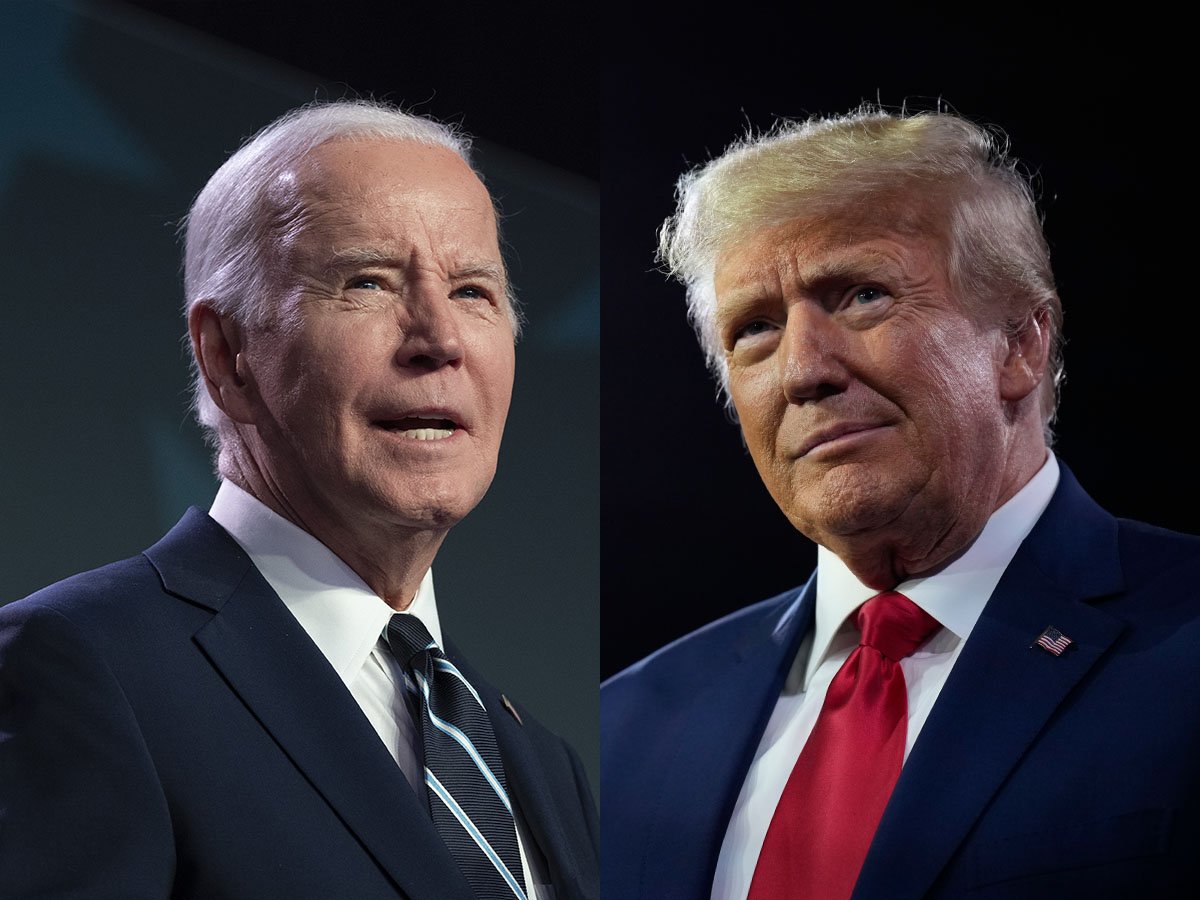Joe Biden, America First? Biden vs Trump: What's the Difference?
Photo via Bloomberg and Getty Images
PATRICK MCFARLAND: This election cycle has the potential to be one of the longest in recent memory; both Joe Biden and Donald Trump have all but officially wrapped up their party's nominations. Unless we make last-minute changes at the convention, these are the two front-runners for the presidency. There are still eight months before the first presidential debate, and while the parties have not made their platforms official, people are already scrutinizing the differences between the two candidates. Despite the apparent differences, there is one area where Biden and Trump have something in common; in this area, Trump has more in common with Democrats than traditional Republicans.
"Trump's greatest achievement may be Joe Biden; people voted for Biden to do the reverse of everything (at least the elite did). He's carrying out a far more intelligent trade and industrial policy than Trump. Still, it is an economic nationalist policy," Michael Lind, Professor of Practice at The University of Texas LBJ School of Public Affairs, said on Andrew Sullivan's Podcast.
While Biden has effectively implemented some of Trump's economic nationalist positions, he is not receiving credit for implementing these policies with Trump supporters. According to Axios, Trump is receiving more support from his base for policies that did not even affect them. For example, while Trump's trade war with China did not directly boost employment in the Midwest and the South, a National Bureau of Economic Research study shows that Trump has received a political boost in the regions.
While Trump's protectionist policies remain popular with his base, his closest Republican competitor, Nikki Haley, has proposed more traditional free market and free trade policies. The contrast between Trump and Haley begs the question: What is the future of the Republican economic platform? Their presumptive nominee primarily argues for economic policies more closely aligned with the current Democratic President.
Another issue where the Democrats, Trump, and his Republican allies have found common ground is American domestic manufacturing and onshoring. In December, before the sale of US Steel to Japanese Conglomerate Nippon Steel, three Republican senators– Hawley, Rubio, and Vance– wrote a letter to Treasury Secretary Yellen stating, "Allowing foreign companies to buy out American companies and enjoy our trade protections subverts the very purpose for which those protections were put in place."
While these senators expressed national security concerns about why they did not support US Steel's sale, Democratic Senators Fetterman and Casey also expressed concern that it would be detrimental to "our nation's core economic identity" and represent a blow to organized labor.
In January, Trump promised to block the sale of US Steel while meeting the President of the Teamsters Labor Union. However, his Commerce Secretary Wilbur Ross told Fox Business that there was no other reason than "xenophobia" to object to American corporations being sold to foreign conglomerates. He said that those expressing national security concerns were "just people in swing states pandering to the unions."
President Biden did a better job of matching his fellow Democrats concerns, saying, "The purchase of this iconic American-owned company by a foreign entity, even one from a close ally, appears to deserve serious scrutiny in terms of its potential impact on national security and supply chain reliability."
As the election nears, both parties are trying to find footing in the middle of the country, specifically in the swing states of Michigan, Pennsylvania, and Wisconsin. Given these states' historical ties to industrial manufacturing, both candidates would pander to labor and working-class professionals. The CHIPS Act was a good start; with the traditional support of organized labor coming from the Democrats, they are more likely to implement these policies, especially considering members of Trump's cabinet seem to think the sale of US Steel is a good idea. However, I feel the Democrats have put too much focus on green manufacturing. While this sounds like a good idea, I am not Hilary Clinton, and I would like to see American workers put back to work. It's not necessarily in coal (I'm sure we can find something for them to do).
It is optimistic that Trump has promised labor leaders that he will block the sale of companies like US Steel to foreign buyers. But what is he going to do? Will he take credit for Biden's success, such as the CHIP Act, or blame Biden for losing companies like US Steel?
Biden and Trump will likely continue to be hawkish on trade with China and tout policy agendas that encourage onshoring, as these policies favor regions of the country that have seen political swings from Obama to Trump to Biden and possibly back to Trump.
It is encouraging that onshoring and the return of American manufacturing are becoming areas for politicians to find common ground. I applaud Senators Hawley, Rubio, and Vance for acknowledging that losing our manufacturing is an issue and a potential national security risk. With all the talk of partisan gridlock and the focus on the significant differences between the two candidates, I am encouraged that there is a common ground in the return of American manufacturing. It is an optimistic start to something our country desperately needs, which is a reason to come together.
Patrick McFarland is obtaining his Masters degree in Mass Communication/Media Studies at Georgetown University. He is a writer for The Voice and other publications.

